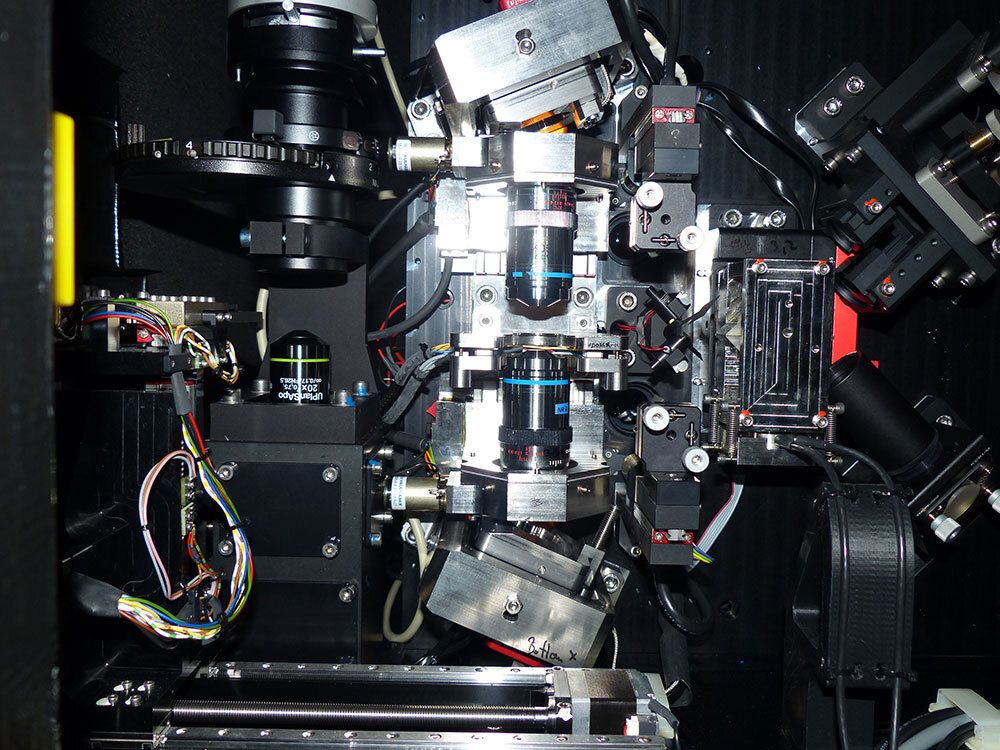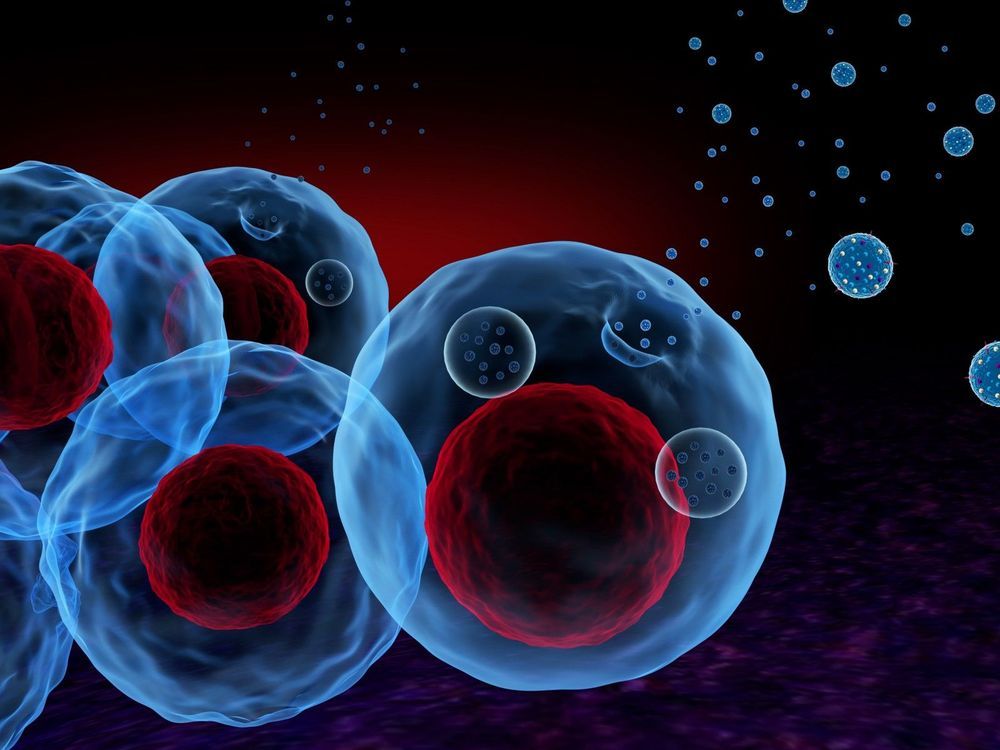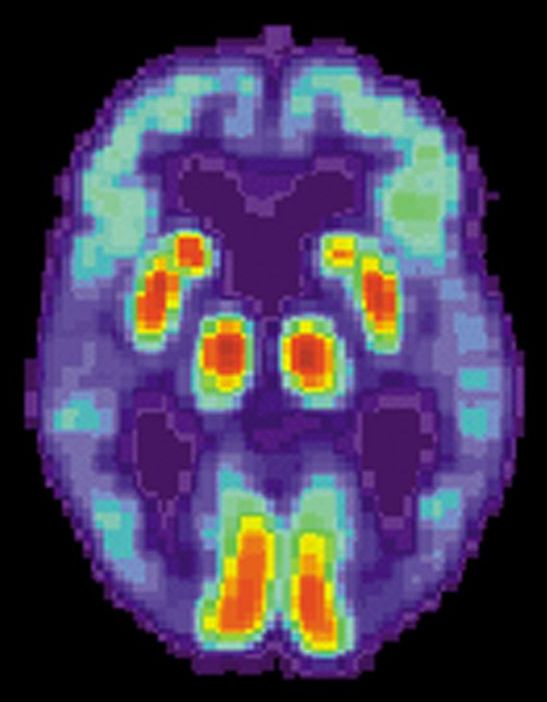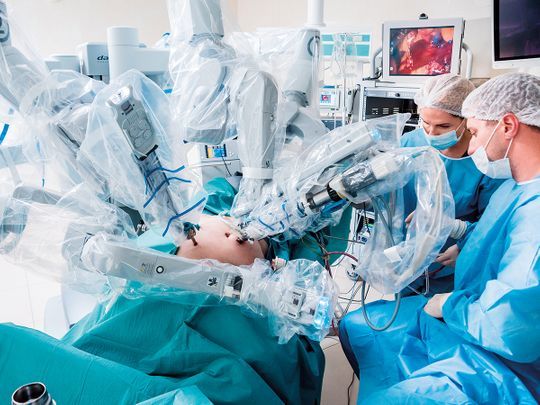Psychiatrists divided on ‘game-changing’ esketamine due to potential for addiction.



The human immunodeficiency virus, or HIV, wages war in our bodies using a strategy evolved over millions of years that turns our own cellular machines against themselves. Despite massive strides in understanding the disease, there are still important gaps. For years, scientists at the University of Utah wished there was a way to visualize how the virus and its molecules interact with human cells in real time. So, a research group developed one.

Scientists have developed a new gene-therapy technique by transforming human cells into mass producers of tiny nano-sized particles full of genetic material that has the potential to reverse disease processes.
Though the research was intended as a proof of concept, the experimental therapy slowed tumor growth and prolonged survival in mice with gliomas, which constitute about 80 percent of malignant brain tumors in humans.
The technique takes advantage of exosomes, fluid-filled sacs that cells release as a way to communicate with other cells.

Researchers at Baylor College of Medicine report today in the journal Neuron evidence that refutes the link between increased levels of herpes virus and Alzheimer’s disease. In addition, the researchers provide a new statistical and computational framework for the analysis of large-scale sequencing data.
About 50 million people worldwide are affected by Alzheimer’s disease, a type of progressive dementia that results in the loss of memory, cognitive abilities and verbal skills, and the numbers are growing rapidly. Currently available medications temporarily ease the symptoms or slow the rate of decline, which maximizes the time patients can live and function independently. However, there are no treatments to halt progression of Alzheimer’s disease.
“Like all types of dementia, Alzheimer’s disease is characterized by massive death of brain cells, the neurons. Identifying the reason why neurons begin and continue to die in the brains of Alzheimer’s disease patients is an active area of research,” said corresponding author Dr. Zhandong Liu, associate professor of pediatrics at Baylor and the Jan and Dan Duncan Neurological Research Institute at Texas Children’s Hospital.

You are invited to Perpetual Life for The Remembrance of the Resurrectables and Age Reversal & Cryonics by Bill Faloon.
Before and After the service, we will celebrate the Remembrance of the Resurrectables in the Sanctuary, A ceremony of remembering all of the patients that are in Cryonic Suspension.
Before the service: Enjoy tasty snacks, networking and conversations on Age Reversal, Cryonics, The Singularity and other topics of interest to all for the quest of an Unlimited Life. Stay afterwards as we have a delicious 5 star dinner reception with speakers.
Bring a friend! Someone that you would like to share news of amazing emerging technologies on Health & Extreme Longevity!
“Our task is to make nature, the blind force of nature, into an instrument of universal resuscitation and to become a union of immortal beings.“
- Nikolai F. Fedorov
We hold faith in the technologies & discoveries of humanity to END AGING and Defeat involuntary Death within our lifetime.

Scientists have created contact lenses which allow the wearer to shoot lasers from their eyes like Superman.
The ultra-thin membranes are placed on the iris and produce a green beam which can shine up to 20 inches from the eye.
Scientists said the beam of light could be used to help in a medical setting or to check for counterfeit banknotes.
The answer is essentially yes … in the short term.
If you’re an apparently healthy person who wants to learn about your genetic disease risks, you can send a saliva sample and a hundred bucks or so to an array-based direct-to-consumer genetic testing company and get some trait information and selected health risks, plus details about your genetic ancestry. But as the direct-to-consumer (DTC) companies themselves will tell you, this is only a fraction of the medical value that may be hidden in your genome. Many of the experts in both ancestry and medical genomics will suggest that since consumer facing genomics are not as comprehensive as those meeting medical standards, it is quite OK for consumers to pay for these products out of their own pockets.
But when it comes to health care, people expect products and services that are medically beneficial to be available to more than just those people who can pay for them. As medical science increasingly demonstrates the life altering value of genomics, the notion that these services must be paid for out of pocket, making it inaccessible to some, does not seem appropriate or fair.
We recently launched the Brigham Preventive Genomics Clinic, the first academic clinic in the world to offer comprehensive, high quality genome sequencing and in-depth interpretation to apparently healthy adults and their children. Over the past two years of planning this clinic, we have struggled with the reality that there is no health insurance coverage for preventive genomic testing, and our patients must therefore pay out of pocket. This is a troubling feature for a clinic at Brigham and Women’s Hospital, which is known for its ties to communities in Boston with diverse ethnic and socioeconomic backgrounds. One must ask: Is a service like this further widening the inequities in our health care system?

Cognitive Behavioural Therapy (CBT) for patients with social anxiety not only helps to reduce anxiety levels but also seems to protect against accelerated cellular ageing, a study involving researchers at Karolinska Institutet published in the journal Translational Psychiatry reports.
“This is the first step towards better understanding the link between cellular ageing and the treatment of psychiatric issues,” says lead author Kristoffer Månsson, researcher at the Department of Clinical Neuroscience at Karolinska Institutet in Sweden.
Individuals affected by mental illness are at greater risk of developing somatic conditions, such as high blood pressure and diabetes, earlier in life than unaffected individuals. While the reasons for this are unclear, one possible contributory factor is that mental health disorders are associated with shorter telomeres and accelerated cellular ageing.

A year marked by climate protests, political uncertainty and debate over the ethics of gene editing in human embryos proved challenging for science. But researchers also celebrated some exciting firsts — a quantum computer that can outperform its classical counterparts, a photo of a black hole and samples gathered from an asteroid.
Climate strikes, marsquakes and gaming AIs are among the year’s top stories.